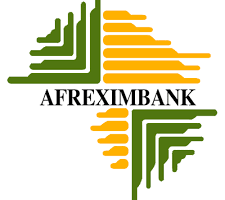The nation’s foreign exchange market in the recent time has witnessed increase in speculation following the lockdown of the economy resulting from coronavirus pandemic spreading across the globe. This has contributed to the depreciation of the naira. AMAKA IFEAKANDU writes on the impact of forex speculation on the economy and other positive indicators for recovery of the nation’s currency post Covid-19.
Naira at risk
The Naira in the last three months is facing the greatest risk from the coronavirus outbreak ravaging the global economy.
Although the Central Bank of Nigeria (CBN) is doing everything possible to maintain foreign exchange stability, the currency speculators have continued to make spurious demands for the dollar with hope to make good returns from the increasing gaps between official and parallel market exchange rates.
Interestingly, the Governor of the CBN, Godwin Emefiele and President, Association of Bureaux De Change (ABCON), Alhaji Aminu Gwadabe have recently analysed the illicit business of currency speculators and the danger posed to the nation’s economy and stability of the local currency.
Currency speculators warned
The apex bank and the association had at different occasions warned the currency speculators about the looming dangers for their trade if they fail to retrace their steps. They also cautioned on the possibility of incurring huge losses amounting to over N 10 billion in the next few months as the CBN planned reopening direct sales of forex to BDCs six weeks after closure of the sector due to the outbreak of Coronavirus and the need to protect the interest of the operators.
The CBN even went further appealing to industrialists patronizing the parallel market to stop such practices in the interest of the economy and for the sustainability of their businesses, failure which they will equally record same huge losses like the currency speculators.
Bureaux De Change Operators also see the reopening of the dollar sales at all the BDCs offices operating at the major cities across the country as a step that would bring to an end the illicit business in the forex market.
For instance, during 2016 currency crisis, the market got a major relief after the BDCs’ started receiving dollar allocations from the CBN and the same scenario is expected to play out as the CBN team and ABCON management begin to count days for the BDCs return to the market.
The apex regulators have come to realise that BDC operators can be the difference between naira recovery and depreciation during volatile and uncertain times, especially now the local currency has come under intense pressure that is driven by speculative demand for the dollar.
BDCs help get dollars to the end users
The BDCs are essentially operators that help get dollars to the end users no matter where they are and have for decades proven time and time again their relevance in stabilizing the naira.
Commenting on the issue of dollar sales to BDCs, Gwadabe said with the CBN’s planned lifting of moratorium on dollar sales to BDCs, reopening of the airports for air travels, global ease on restriction of movement are positive indications that dollar flows to the economy will soon improve.
BDC operators said that the reopening of the economy which led to the gradual flow of funds into system contributed to the increase in demand of equities and appreciation of stock price in the Nigeria Capital market and such a thing would also happened in forex market if BDCs operators begins full operations for dollar sales.
The ABCON president said that as the naira has been exchanging at N461 to dollar at the parallel market, it will be upbeat once dollar sales to BDCs commence.
According to him “The return of over 5,000 BDCs to the forex market will add great strength to the Naira and lead to major capital losses for forex speculators. It happened in 2016 and it will happen again in 2020.”
” The return of the BDCs will immediately boost Naira recovery and put the enemies of the economy to shame. We are committed to the CBN’s exchange rate stability and will take all necessary steps within set rules and regulations to keep the naira stable,” he assured.
Gwadabe said the return of BDCs to the forex market will help chase away speculators, curb rising inflation, boost productivity and employment, enhance price discovery, enhance market transparency and competitiveness.
Indicators for recovery of local currency
Aside positive developments in the global economy, the CBN has taken action to address the risks facing the naira, which will lead to rapid recovery for the local currency.
For instance, the recovery in the Chinese manufacturing sector and opening of the Asian tiger’s economy after months of closure due to the coronavirus pandemic have raised the country’s crude oil demand, many of which will be bought from Nigeria. Such purchases will boost Nigeria’s dollar earnings.
Besides, Nigeria is one of the few lucky countries that have secured emergency $3.4 billion loan from the International Monetary Fund (IMF) under the Rapid Financing Instrument (RFI). This fund will not only support Nigeria’s financial sector and address problem of balance of payment, but has boosted foreign reserves and financing of the budget for targeted and temporary spending increases.
Nigeria’s foreign reserves have reached over $37 billion, which represents enough buffers for the CBN to deal with any act of illegal economic behaviour like hoarding, speculation, conversion of local assets among other illicit financial activities.
Gwadabe also added that the OPEC measures on sustainable price stability are commendable as many governments across the world have agreed to oil production adjustment targets and continued collaboration with all their partners, a move that will benefit Nigeria.
Guidelines for reopening BDCs forex market
To ensure that operators get prepared for full foreign exchange transaction, Gwadabe said ABCON is issuing their reopening guidelines to all its members nationwide. The guidelines according to him include on-boarding on the queuing crowd ticketing management application by all members known as ABCON 360°QSM portal with over 80 per cent members registered so far nation wide,” he said.
African currencies’s performances under Covid-19
ABCON boss Gwadabe said the impact of the coronavirus pandemic on the naira was not as bad as seen in other African countries’ currencies.
He explained that amid huge capital flow reversal driven by risk-off sentiment, currency rates of African countries shows that the South African rand is the worst hit, declining by 20.6 per cent year-to-date .
This is followed by the Angolan Kwanza which has depreciated by 16.1 per cent, Mauritius Rupee (-8.8 per cent), Nigerian Naira (-6.6 per cent) and Kenyan Shilling (-5.3 per cent) followed in that order. Others include the Tunisian Dinar (-3.8 per cent), Morocco’s Dirham (-2.7 per cent) and the West African Monetary Union’s CFA franc (-2.3 per cent ). Notably, the Egyptian Pound, up 1.3 per cent year-to-date, remains the best performer across the region.
CBN’s warning to patronizers parallel market
Emefiele has warned domestic and foreign investors against patronising the unofficial market, saying it was helping to overheat that market.
Dollar sales have since resumed following a phased easing of the lockdown but foreign investor currency demand is yet to be met.
Emefiele, has warned firms and individuals against patronizing the parallel market, popularly called the black market.
While encouraging them to stop using black markets for foreign currency exchange, he noted that patronizing the parallel market is helping to overheat the foreign exchange market.
ABCON’s commitment to exchange rate stability
Gwadabe disclosed that ABCON Executive Council under his leadership will continue to promote transparency and efficient market dealings while commending the CBN Management for its progressive policies and achieving stable exchange rate that aligns with its price stability.
He said the CBN has been able to create a people-focused Central Bank promoting macro-economic objectives such as low inflation and a stable exchange rate, along with a focus on promoting inclusive growth and reducing unemployment in the country.



